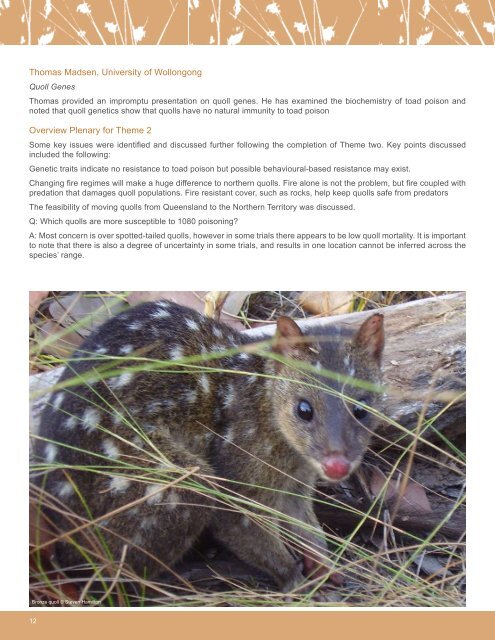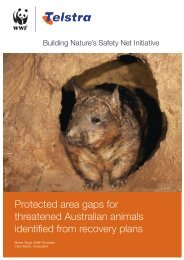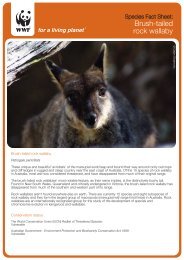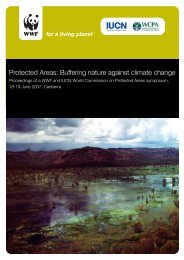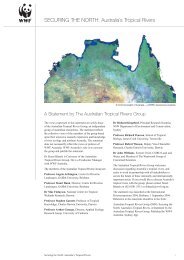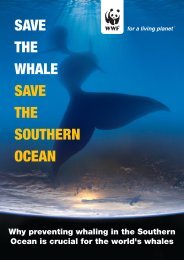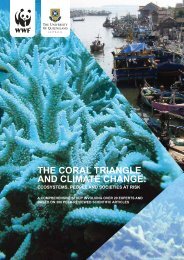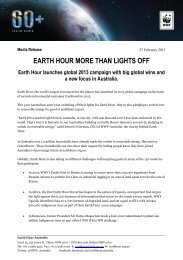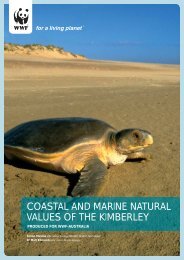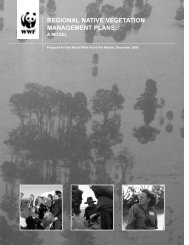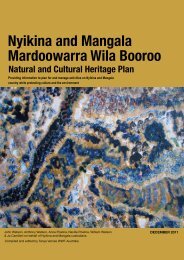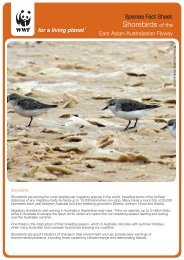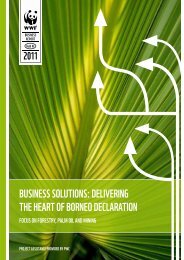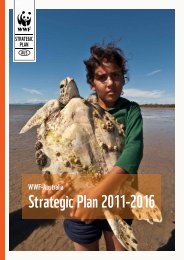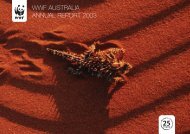Proceedings of the WWF-Australia Quoll Workshop
Proceedings of the WWF-Australia Quoll Workshop
Proceedings of the WWF-Australia Quoll Workshop
You also want an ePaper? Increase the reach of your titles
YUMPU automatically turns print PDFs into web optimized ePapers that Google loves.
Thomas Madsen, University <strong>of</strong> Wollongong<strong>Quoll</strong> GenesThomas provided an impromptu presentation on quoll genes. He has examined <strong>the</strong> biochemistry <strong>of</strong> toad poison andnoted that quoll genetics show that quolls have no natural immunity to toad poisonOverview Plenary for Theme 2Some key issues were identified and discussed fur<strong>the</strong>r following <strong>the</strong> completion <strong>of</strong> Theme two. Key points discussedincluded <strong>the</strong> following:Genetic traits indicate no resistance to toad poison but possible behavioural-based resistance may exist.Changing fire regimes will make a huge difference to nor<strong>the</strong>rn quolls. Fire alone is not <strong>the</strong> problem, but fire coupled withpredation that damages quoll populations. Fire resistant cover, such as rocks, help keep quolls safe from predatorsThe feasibility <strong>of</strong> moving quolls from Queensland to <strong>the</strong> Nor<strong>the</strong>rn Territory was discussed.Q: Which quolls are more susceptible to 1080 poisoning?A: Most concern is over spotted-tailed quolls, however in some trials <strong>the</strong>re appears to be low quoll mortality. It is importantto note that <strong>the</strong>re is also a degree <strong>of</strong> uncertainty in some trials, and results in one location cannot be inferred across <strong>the</strong>species’ range.Bronze quoll © Steven Hamilton12


